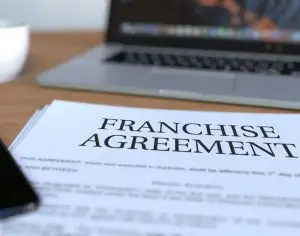A time will come for every franchisee to leave the franchise network and there are essentially three main ways that a franchisee can do so – (1) termination, (2) non-renewal / closure of the business or (3) a resale. A resale is the only choice which is a win-win for both the franchisor and the franchisee – the franchisee is able to exit usually with at least something in their pocket and the franchisor gains a new franchisee who can carry on the business and look after the customers.
As a franchisor, if you have a franchisee exiting your network (the seller) you will need to release them from their franchise agreement – this is normally done by way of a deed of termination and release. You will also have a new franchisee joining (the buyer), a franchisee who needs to be approved and signed up to a new franchise agreement. Whether it is an asset or a share sale, the buyer and the seller will need to have a sale and purchase agreement in place between them to govern the terms of the agreed transaction. And therefore, unlike sales of non-franchised businesses, a sale of a franchised business involves three parties and thus forms a triangular relationship with the franchisor at the top of the triangle.
The tricky part of any franchise resale is timing. If the buyer is new to the network (i.e. they are not an existing franchisee) then they will need to be trained and the franchisor, understandably, would not want to put the buyer through the initial training unless the sale is definitely going through! Equally, the franchisor cannot grant exclusive rights to the same territory to two parties at the same time and this is why it is essential to ensure that the right documents are signed at the right time and that it is clear to all parties what should happen if the sale was to fall through and not complete.
The nature of franchise resales (and not just franchise resales) is that target dates can slip and this often happens for a variety of reasons. If any part of the transaction described above is being dealt with separately, there is a risk that either something could be missed off or not happen at the right time, especially if negotiations are tricky or moving at a fast pace. Keeping everyone in the loop can also mean multiple lines of communication which can have cost consequences for all parties. Instead, a much neater solution could be if the franchisor was a party to the sale and purchase agreement.
By doing do, not only would this tie all of the separate parts of the transaction together such that the release of the seller would be conditional on the sale actually going through and the commitment of the buyer to entering into a new franchise agreement would also be conditional on the sale going through but the terms of the release of the seller would actually be contained within the sale and purchase agreement thus avoiding having a separate document and if there is a delay to the sale for any reason, the whole transaction gets moved along together. And the added bonus is that this typically results in the franchisor being better informed and kept up to date, because the parties will inevitably need to do so and cannot progress without the franchisor’s involvement.
There are also practical advantages to the franchisor in pro-actively managing resales. If the franchisor has standard form documents that the buyer’s and the seller’s solicitors can use, this will help keep the costs down for both the buyer and the seller. In return the franchisor’s legal costs are usually covered equally by the buyer and the seller, making the transaction cost neutral to the franchisor. Another document which can be invaluable to all parties is an overview or a guide which essentially explains the process, steps involved and what the franchisor expects from both parties. This can be shared with the buyer and the seller at the outset to set expectations and provide some useful information – often the buyer is new to the process and buying an existing business as well as a franchise may be a rather big step. For the seller, it is important to continue to operate their existing business whilst going through this process which, again, is not always straightforward and can put the seller under additional pressure and stress. Having something as simple as a guide or an overview can de-mystify the process and help the parties as they know what to expect.
Being involved in a resale process does require time and effort but as shown above, a franchisor would be involved however you look at it but by leading and formalising the process, the franchisor can make it not only more efficient for themselves but also more efficient, often less expensive and overall a more positive experience for the buyer and the seller.


































